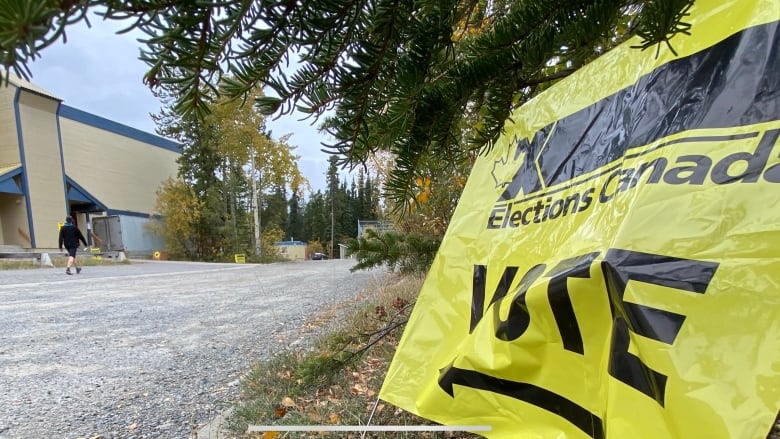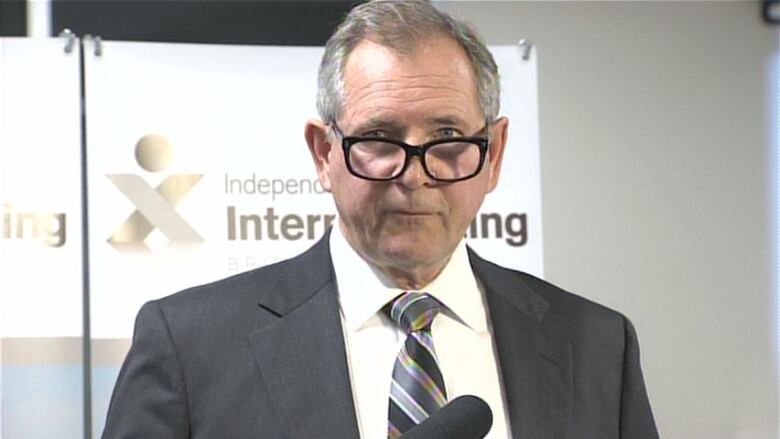There are many options to change Yukon's voting system, but it will take work, say experts
Expert witnesses tell committee electoral reform is major undertaking

Yukon's Special Committee on Electoral Reform wrapped up more than a week of hearings Monday, with plenty of options for change, and plenty of warnings that such change will be difficult to achieve.
Expert witnesses, mostly political scientists, warned that if the Yukon is serious about changing the way voters elect MLAs, then the process will require lots of work on the part of politicians, institutions and citizens alike.
While those experts hold a range of views on electoral reform, they're largely in agreement that any such effort requires broad consultation and extensive efforts to inform the public about allthe options.
Keith Archer, the committee's researcher and British Columbia's former chief electoral officer, said Monday that a citizen'sassembly or electoral reform commission should narrow down the list of possible options before any referendum.
"It's very difficult for a committee like yours to be ...the last word on reform proposals," Archer said. "And some thinking about consulting the public either through a citizen's assembly or a commission or referendum or some combination of those things, I think is a very useful starting point."

The committee is considering whether there's an appetite to get rid of the first-past-the-post system, common nearly everywhere in Canada, and replace it with a different way to, as Archer put it, "convert seats to votes."Archer put togethera primer that outlines the spectrum of possibilitiesfor the committee.
Witnesses also said that it's important for any electoral reform process to be transparent and free from partisan bickering as much as possible.
"The process matters," said Thrse Arsenault, a political scientist at the University of Canterbury in New Zealand, who testified last week."It's not enough just to be a legal process in terms of electoral reform, it has to be seen as legitimate."
New Zealand is the rare example of a place that changed its electoral system via a pair of referendums in the early 1990s. Arsenault said that country's election officials took the lead on electoral reform and the politicians took a back seat, giving the process more legitimacy.
But, the electoral reform process in the Yukon hasproceeded in fits and starts. Both the Liberals and NDP promised reform in the 2016 election.But the process went off the rails during the Liberal majority government of 2016-21 amid a haze of partisan bickering, procedural shenanigans and accusations that the Liberals were trying to stack the deck in their own favour.
The current committee is made up of one member each from the Liberals, Yukon Party and NDP. It'sonly happening at all because it wasa condition of the NDP's confidence and supply agreement to prop up the now-minority Liberals, who were reduced from 11 seats to eight in last April's territorial election.
The committee will soon launch a survey and conduct other public consultationsbefore filing a final report this fall. All hearingsand written submissionsare available here.
Whileacademics who appeared before the committee tended to agree that any change should be approved by voters through a referendum, Fair Vote Canada, a group that lobbies for electoral reform, disagreed. The group's executive director suggested referendumsare inherently biased in favour of the status quo.
Electoral reform votes in Canadahave mostly gone down to defeat. Referendums in B.C., PEI, and Ontario have all failed for various reasons. Two attempts at electoral reform in New Brunswick never made it to the ballot box.
"The playing field in referendum campaigns is far from level," said Anita Nickerson of Fair Vote Canada, last week."The No side possesses a powerful advantage, while the Yes forces tend to face an uphill struggle."
But that is exactly the point, argued Peter Loewen, a political scientist with the Munk School of Global Affairs and Public Policy in Toronto.
"Maybe voters know what's good for them, and they like the systems that they've got," Loewen said.
"I think that's why a referendum is a really good test. It's really fair to ask everybody [and] if you think people are smart enough to vote for you and to engage in democracy, they're smart enough to choose their electoral system."












_(720p).jpg)


 OFFICIAL HD MUSIC VIDEO.jpg)
.jpg)



























































































